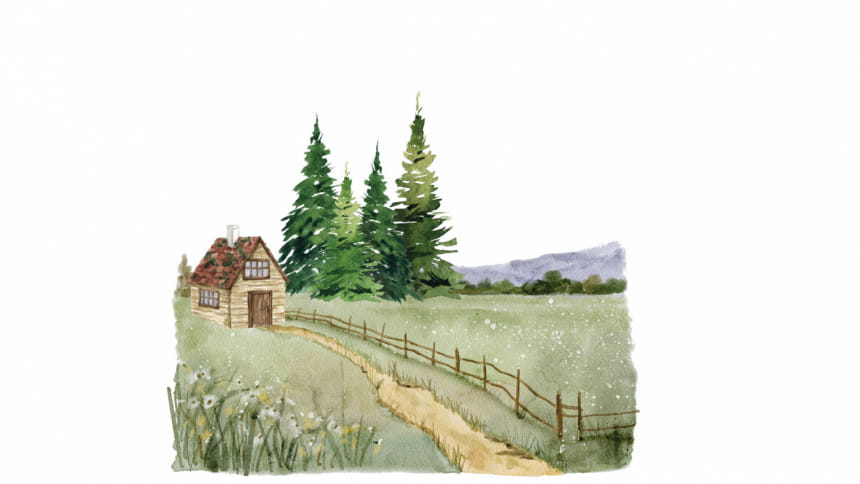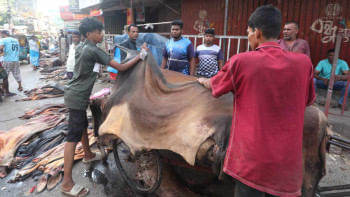On travel and writing

It is perhaps not an overstatement to say that humans are, at their core, wanderers. Even after shedding their once nomadic lifestyles to settle down under the far-reaching societal umbrellas we see today, people continue to flit from one end of the world to the other at every opportunity. Travel serves as solace, and a refuge from the ennui of daily life, offering in its place an escape from monotony and listlessness. As it beckons travellers to explore new planes and reckon with the unfamiliar, this dispel of everyday tedium brings with it a new sunrise and reinvigoration much sought after. Of course, the reasons why people travel are as manifold as they are. Some, chasing an untold but intoxicating allure, scale mountains and set sail across the oceans, while others seek rejuvenation in discovering new worlds before hopping back into their work, and others yet travel for the sake of work itself. Whatever the reason, so long as there is desire, need, and ability, there is little doubt that the wind beneath their feet will drive humans to traverse the world and all its terrain. As Rabindranath Tagore said, "Ami choncholo he, ami shudurero piyashi."
The truth is that travel is a rather mysterious addiction, for the thrill of which people have saved and spent hard earned money and even overcome the fear of death to venture across perilous paths. While travel can be endlessly enriching, it is often also a deeply personal and individual endeavour, the experiences of which can be difficult to impart onto others who have not undertaken the same expeditions. But when people write about their travels, sharing their insights through books and blogs, their experiences take on a collective, and rather timeless, nature, offering many more the opportunity to embark on journeys of the mind, and a taste of what it's like to set foot on far off lands.
In the past, despite significant challenges in transport and communication alike, voyagers across the globe forged ahead. And among those who set out on such journeys, trekking across snaking trails and traversing unnavigable terrain, many returned with extraordinary tales of their travels, of near and distant corners of the world which have been charted and changed over decades—stories no less striking or spectacular than our most breathtaking novels have to offer. Marco Polo, Hiuen Tsang, Fa-hien, Ibn Battuta, and Megasthenes have forever been immortalised through their writings, and it is because of their work that we're able, even today, to hop into these time machines and travel to lands and times long past; without their records, knowledge of the economic systems, politics, and societies of bygone eras would be far more difficult to access. And this is where the timeless appeal of travel writing lies. However, the words of Annada Shankar Ray ring true: "Travel inspires travelogues, but not through the hands of all travellers." Travel writing, and travel literature moreso, requires a thoughtful and in-depth examination of life, a profound appreciation of nature and its creation, and the capacity to inspire enough curiosity to draw readers into its depths time and again. And so, travel writing isn't merely writing about travel; only in the presence of literary essence does it lend itself to a truly transformative reading.
Travel literature in Bangla, no more than a hundred and fifty years old, had found its footing in the works of Rabindranath; his portrayals of wherever he travelled delighted the senses of readers far and wide, all but transporting them to those lands alongside him. Because of Rabindranath's profound observations of the world in his time, Java-jatrir Patra, Russiar Chithi, and Europe Probashir Patra, among other pieces of travel writing, continue to be noted for their literary excellence. He didn't travel merely to take a glance at these countries, but instead wanted to venture beyond what one could see as an outsider, and to learn its inner workings, which his readers at home too came to know of through his writing.
Syed Mujtaba Ali's first travelogue, Deshe-Bideshe, is a remarkable addition to Bangla travel writing, and one that has eternalised its author in the world of Bangla literature. His narrative style depicted Afghanistani social life and the souls and spirits of the Afghan people in a way that continues to captivate readers today. A more contemporary counterpart also delving into Afghan life is Mainus Sultan's Kabuler Caravan Sorai, which brings to light the heartbreaking reality of the superpowers' interference and hypocrisy in Afghanistan, and the consequent agony of the Afghans. Reading travelogues such as these in conjunction offers their readers a comparative study of a country's evolution and a more in-depth understanding of its history and modernity.
Several other literary figures have imparted similarly incredible travelogues to Bangla travel literature, replete with mesmerising experiences and cultural delights alike, and many more continue to do so today. Sanjib Chattopadhyay's Palamou, Rahul Sankrityayan's Volga Theke Ganga, and Annada Shankar Ray's Pothe Probashe are each treasure troves of Bangla travel literature, and famed writers such as Buddhadeva Bose, Sunil Gangopadhyay, Nabaneeta Dev Sen, Maitreyi Devi, Buddhadeb Guha, Manoje Basu, and Hasnat Abdul Hye have written extensively about their experiences.
In Bangladesh, notable names one is likely to come across while exploring the travel writing genre include Faruk Moinuddin, Mainus Sultan, Zikrur Reza Khanam, Anwara Syed Haq, and Shakoor Majid, although emerging names and faces are also gradually making their marks in the scene through countless new publications.
Social media provides yet another window into the world of travel and travel writing, offering a peek into people's journeys to some of the farthest and most astonishing corners of the world. Travellers regularly write and record their experiences on their feeds, and many such write ups are subsequently published in newspapers and magazines, or compiled in books. The readership for such writing is also quite noteworthy, and people's enthusiasm for both travel and travel writing have led to dedicated travel pages in many leading dailies. This culture of reading, writing, and engaging with travel literature to such a degree has no doubt enriched and expanded the genre.
The allure of the infinite and humanity's appetite for the unfamiliar remain eternal. Humans seek out change, anything to break out of the mould and monotony of daily life, and the knowledge one opens themselves up to as they wander the world's paths often fails to hold a candle to institutional learning.
Translated by Amreeta Lethe
Khama Mahmud is a Bangla short story and travel writer whose works have appeared in several online and offline publications, as well as her debut short story collection, Shomudrer Kachhe Dukkho Joma Rakhi (Anupranan Prokashon, 2023). She has an MA in English Literature from the University of Dhaka.
Amreeta Lethe is a writer and translator. She is currently working as a sub-editor at Star Books and Literature.


 For all latest news, follow The Daily Star's Google News channel.
For all latest news, follow The Daily Star's Google News channel. 









Comments